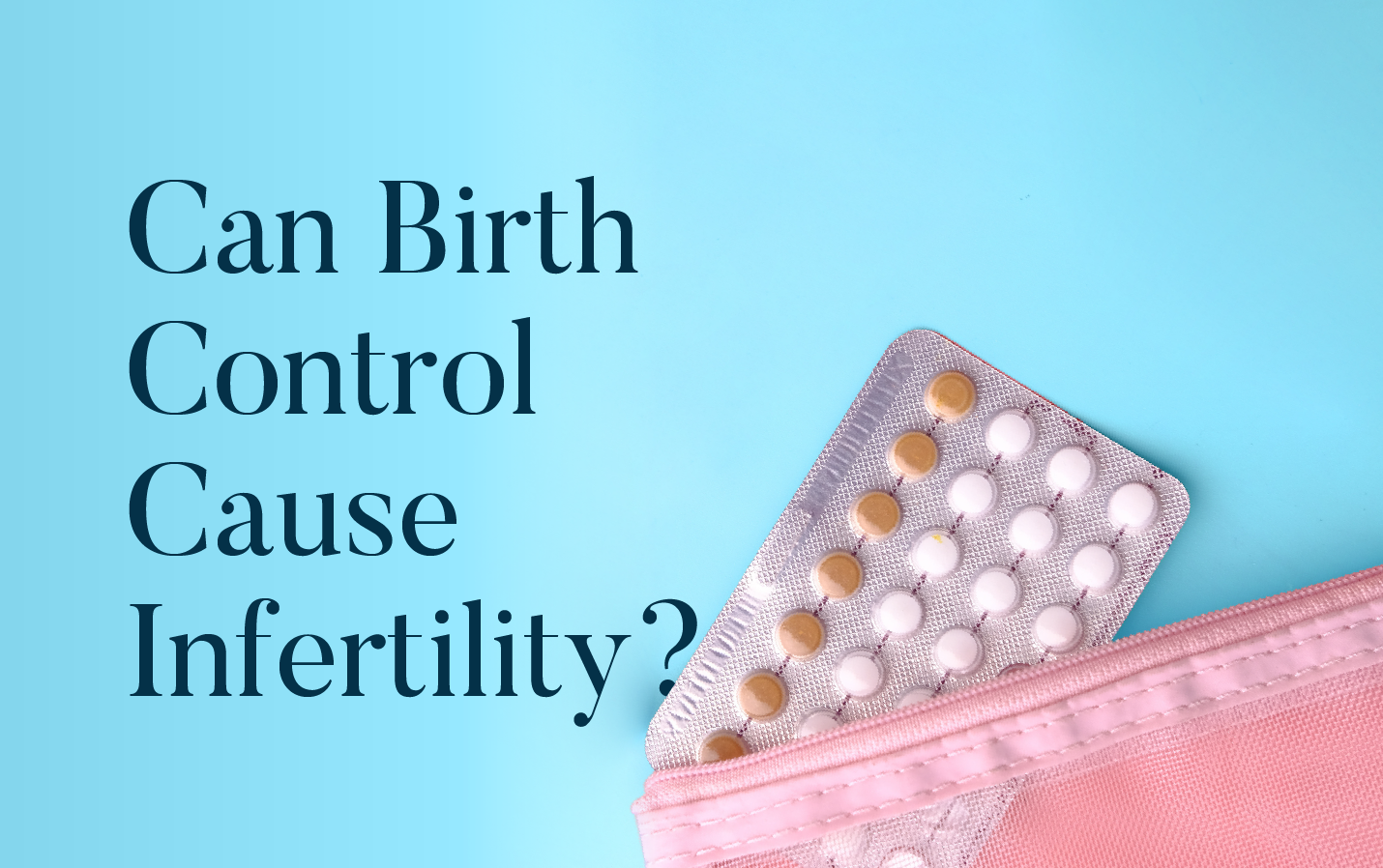
Can Birth Control Cause Infertility?
Understanding Birth Control and Infertility
Can birth control cause infertility is a commonly asked question among people experiencing fertility issues. When you’re struggling with fertility it’s natural to look back at your medical history and wonder if certain medications are part of the cause. There are a lot of misnomers out there about birth control because its purpose, of course, is to prevent pregnancy. However, there is no correlation between past use of birth control and long-term infertility. In other words, birth control is not a cause of infertility.
Understanding How Birth Control Works
There are many types of birth control that all help to prevent pregnancy differently. Understanding how each works offers a deeper window into why birth control and infertility are not correlated.
Some people experiencing infertility feel that birth control is to blame for irregular periods after getting off of it. This is almost always not the case. Birth control regulates menstruation and can sometimes mask irregular cycles that were already present which might be contributing to infertility. While all birth control, like all medication, has its own risks and side effects, in some cases birth control actually offers health benefits as well.
Birth Control Pills
Oral pills are the most commonly used form of birth control. There are many different types but they typically function by preventing sperm from fertilizing an egg, curbing ovulation, and sometimes altering the lining of the uterus and cervix.
The potential health benefits of birth control pills are pain relief for endometriosis, reducing the risk for ovarian cysts, and reducing the risk of ovarian cancer. It's possible to get pregnant within one to three months after stopping the pill once your cycle returns to normal.
Birth Control Patches and Rings
Patches and rings function similarly to the pill by impacting fertilization, ovulation, or the uterus and cervix lining. The patch adheres to your skin and is changed once a week. The ring is also replaced once a week and is inserted into the vagina up against the cervix.
Intrauterine Devices
This birth control method, also known as an IUD, is implanted directly into the uterus. The hormonal version releases a hormone that affects fertilization and ovulation. Copper IUDs work differently without hormones by releasing copper ions that make it difficult for sperm to reach and fertilize an egg.
IUDs come with a slight risk for pelvic inflammatory disease within the first few weeks of insertion but the overall risk is still low.
You can become pregnant almost immediately after removing an IUD which makes it an appealing option for those who know they would like to try conceiving soon.
Birth Control Injections and Implants
Injectable birth control is administered by a doctor every three months and thickens the cervical mucus while controlling ovulation. It can take a few months to a year for your normal cycle to return after stopping the injections so it may not be the best option for someone who wants to start trying to conceive quickly after stopping birth control, but it has no long term effects on fertility after that.
The implant is a small rod implanted in the arm. It releases a hormone that thickens cervical mucus and thins the endometrial lining both of which helps to prevent pregnancy. You are able to start trying to conceive within a few weeks to a month after having the implant removed.
Barrier Birth Control Methods
Barrier methods include condoms, spermicide, and diaphragms. All of these physically block the sperm rather than using hormones. This form of birth control won’t affect your cycle and you can become pregnant immediately after stopping usage.
The downside of the barrier method is that there is a higher chance than other birth controls that it could break or fail causing pregnancy when it's unwanted. The pro, and the reason why many people layer the barrier method with other forms of birth control, is that it can help prevent sexually transmitted infections (STIs). Preventing and treating STIs when they occur is important for both fertility and overall health.
The Use of Birth Control in Fertility Treatment
It may seem counterintuitive for birth control and infertility treatment to mix, but it is often used in these processes. During egg retrieval for freezing or in vitro fertilization (IVF) birth control can be used to regulate the cycle and synchronize follicle growth in an effort to get the highest number of mature eggs possible. The more quality eggs retrieved the higher the chances of a pregnancy.
Birth Control and Infertility
Birth control is not a cause of infertility, but choosing the right one based on your needs and how long after discontinuing you are able to conceive again is important as you contemplate your own timeline for parenthood and potential treatment. Schedule a consultation today to discuss birth control and infertility with one of our Spring experts.